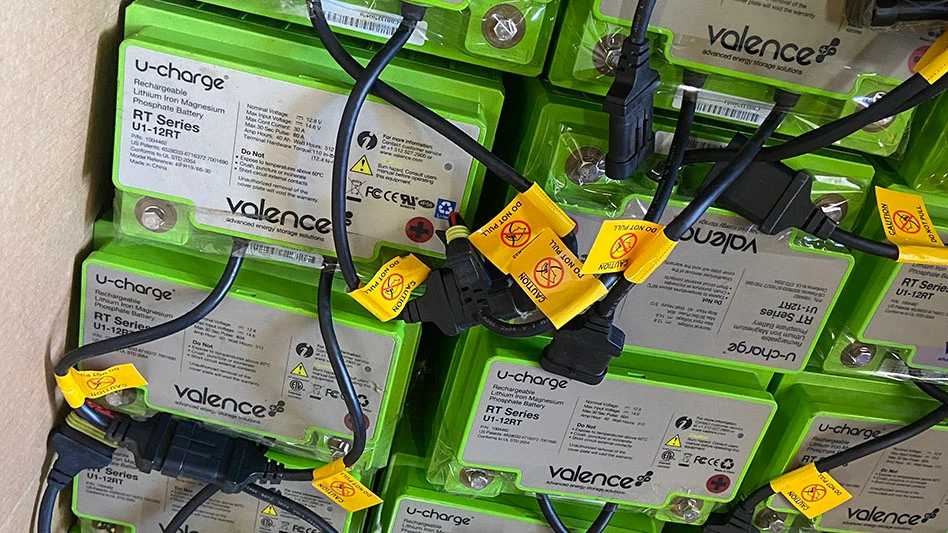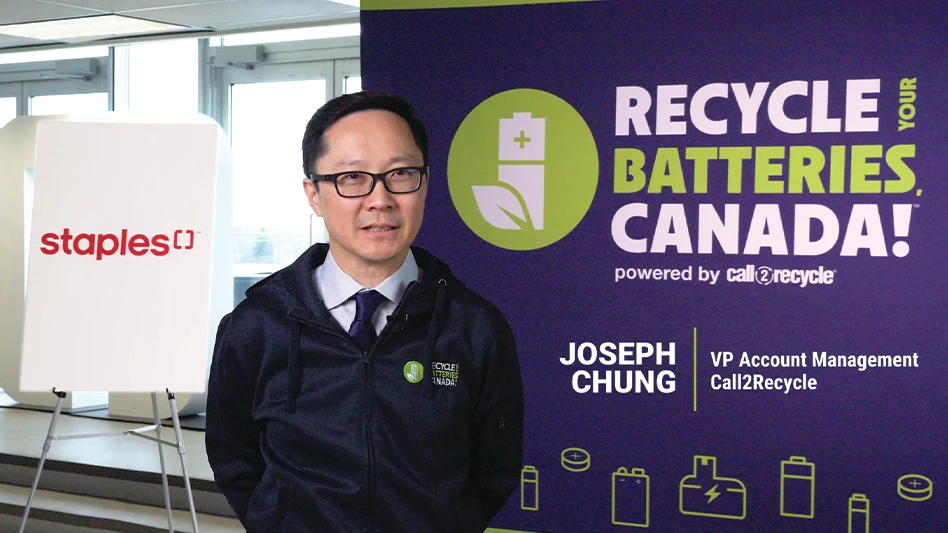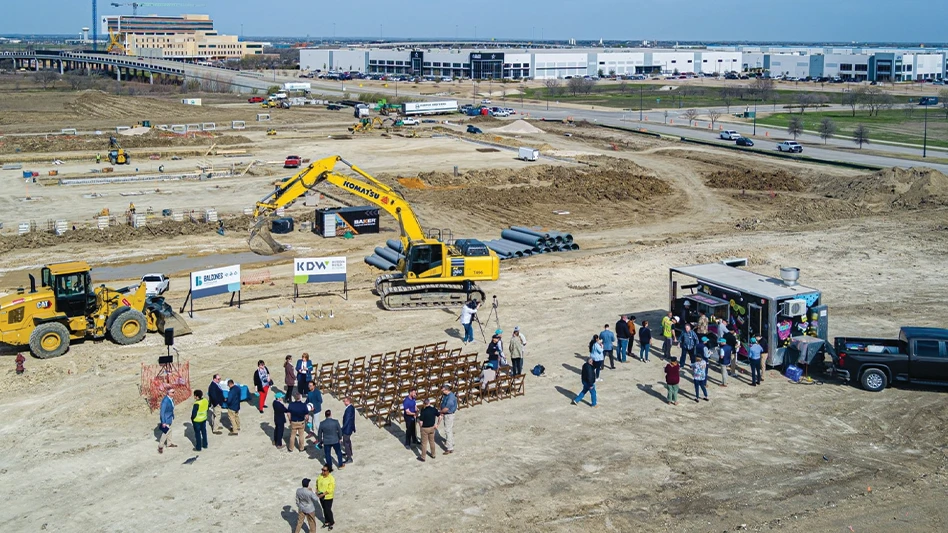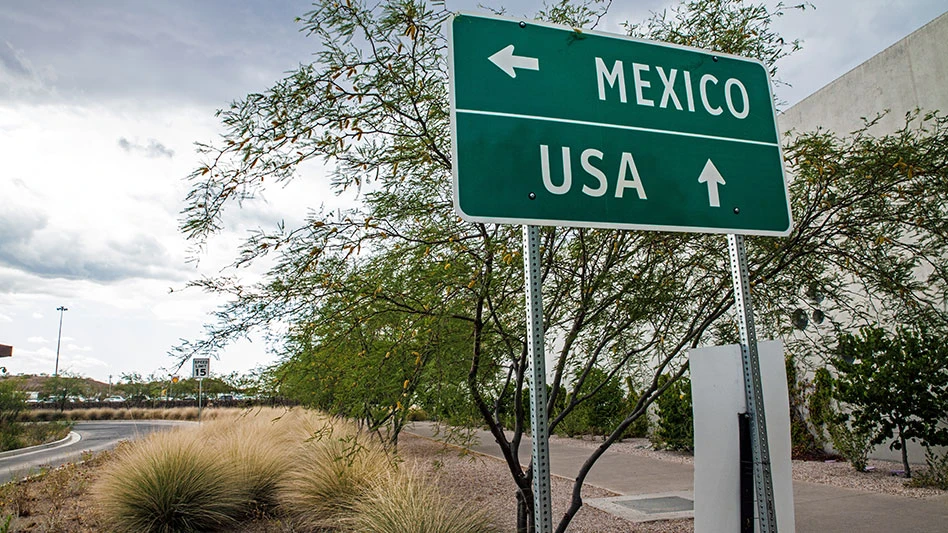
Recycling Today archives
Toronto-based lithium-ion battery recycler Li-Cycle Holdings Corp. and Switzerland-based mining and metals firm Glencore International AG are working together to "fast-track" the production of lithium carbonate at a Portovesme, Italy, facility that is under construction.
The two companies have fast-tracked a Phase 1 of the project, which is designed to process up to 11,000 metric tons of black mass annually during the first half of 2024. The completion of a later Phase 2 project will bring the site’s capacity to an expected 50,000 to 70,000 tons annually.
Phase 1 is subject to receipt of all final regulatory approvals and definitive agreements to reach that 2024 timeline, Li-Cycle says in a news release. After Phase 1, Portovesme is expected to produce up to 1,500 metric tons of lithium carbonate, up to 3,000 metric tons of “contained nickel” and up to 500 metric tons of contained cobalt per year.
The planned final iteration of the Portovesme “Hub” project remains the same. “The company expects the Phase 2 facility to have 50,000 to 70,000 metric tons of black mass processing capacity, and to produce up to 16,500 metric tons of lithium carbonate, as well as up to 18,000 metric tons of contained nickel and 2,250 metric tons of contained cobalt per year," Li-Cycle says.
The Portovesme Hub is being designed to process all forms of lithium-ion-based black mass, including lithium iron phosphate (LFP) materials.
“The development of the Hub with Li-Cycle at Glencore’s Portovesme site is progressing well, underpinned by strong endorsement from multiple internal and external stakeholders,” says Kunal Sinha, global head of recycling for Glencore. “The project, combined with our existing footprint in the primary supply, as well as recycling of battery metals, is a core tenet of our ambition to become the circularity partner of choice with Li-Cycle for the European battery and EV industry.
“Specifically, this multi-phase approach to the development of the Hub allows us to start to close the loop for battery materials in Europe as early as the first half of 2024, while we work towards designing and building Phase 2.”
The black mass processed at Phase 1 and Phase 2 is expected to be supplied from Li-Cycle’s European “Spoke” recycling network and Glencore’s commercial network. Li-Cycle recently has commenced operations at its first European Spoke in Germany.
“Li-Cycle continues to strengthen its first mover advantage in Europe and support our growing commercial customer base in qualifying for European Union regulations with our local, sustainable recycled content," Li-Cycle co-founder and Executive Chair Tim Johnston says.
Sponsored Content
Labor that Works
With 25 years of experience, Leadpoint delivers cost-effective workforce solutions tailored to your needs. We handle the recruiting, hiring, training, and onboarding to deliver stable, productive, and safety-focused teams. Our commitment to safety and quality ensures peace of mind with a reliable workforce that helps you achieve your goals.
Li-Cycle and Glencore “anticipate forming a 50/50 joint venture for the Portovesme Hub, which also contemplates competitive long-term financing from Glencore to fund Li-Cycle’s share of the capital investment.”
Phase 2 of the Portovesme Hub is expected to begin commissioning in late 2026 or early 2027, according to Li-Cycle.
Get curated news on YOUR industry.
Enter your email to receive our newsletters.
Latest from Recycling Today
- SABIC’s Trucircle PE used for greenhouse roofing
- Hydro to add wire rod casthouse in Norway
- Hindalco to invest in copper, aluminum business in India
- Recycled steel price crosses $500 per ton threshold
- Smithers report looks at PCR plastic’s near-term prospects
- Plastics association quantifies US-EU trade dispute impacts
- Nucor expects slimmer profits in early 2025
- CP Group announces new senior vice president









